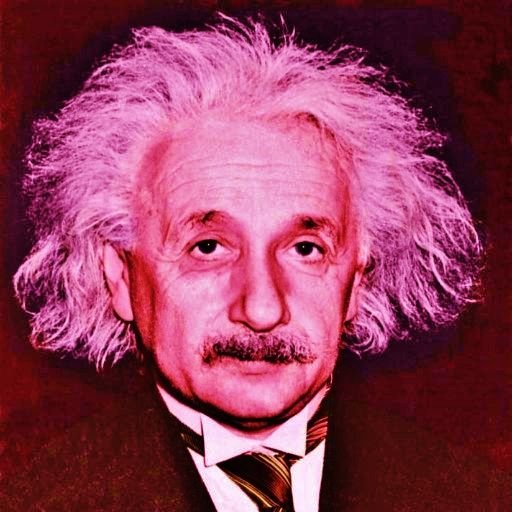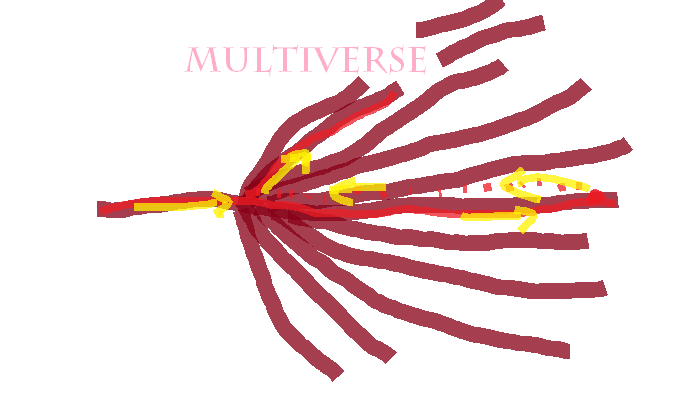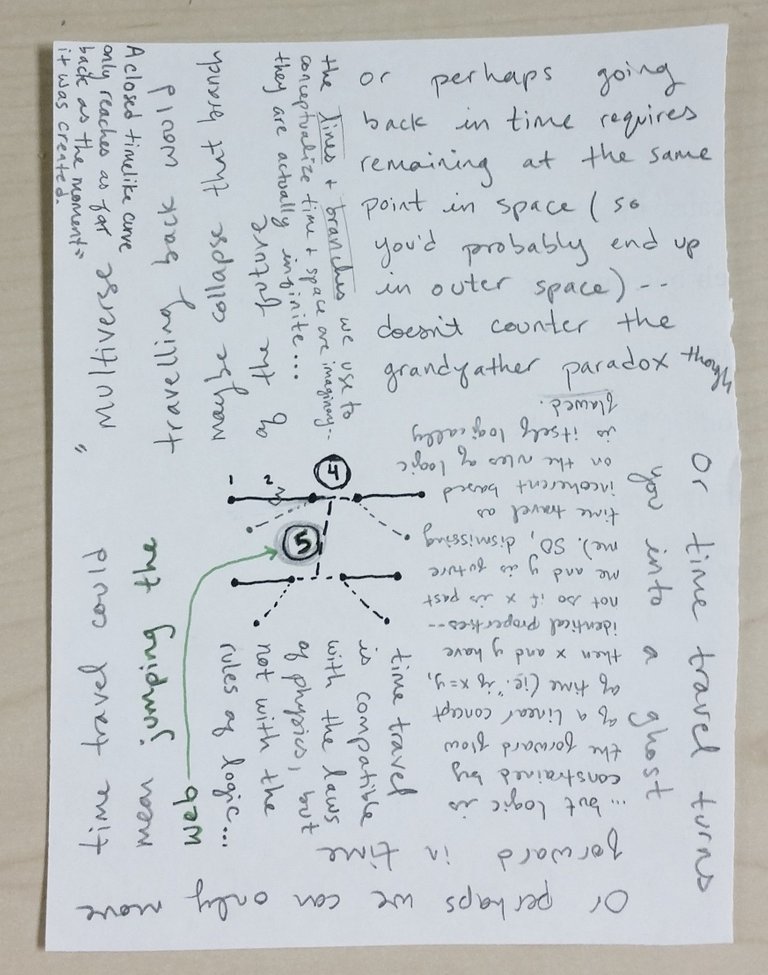I'm an encyclopedia researcher and editor and I've been researching time travel at work. To say that it's been interesting would be an understatement.
Here are some things I've learned about time travel:
It meshes with the laws of physics. In fact, Einstein's theory of relativity supports the possibility of time travel!

Many people think that time travel is impossible due to logical flaws. This is not true!! For example, there is the grandfather paradox. If Helga traveled backwards in time and killed her grandfather in his crib, she would not exist so it would be impossible for her to have done that. Many people would use this example to completely dismiss the possibility of time travel. They are wrong!
The Butterfly Effect

Even the slightest alteration to an earlier point in the timeline could change the whole future.
...They are wrong because logic is based on the forward linear progression of time, so we can't use logic to dismiss the idea of moving backwards in time. For example, one basic rule of logic is that "If x = y, then x and y are the same." This is true for most purposes... But time destroys that logic. If x = Helga as a toddler and y = Helga as an old woman, then x = y but x and y are very different.
Logic is a manifestation of how our brains are wired to process spacetime in a consistent manner that we can swim through. Using logic to judge the possibility of time travel is in itself logically flawed.The theory of the multiverse could solve the grandfather paradox. Maybe Helga goes back in time and her arrival at that previous point in time sprouts a new branch of the future. This would explain why there aren't hoards of people coming to visit from the future.

It is possible that closed timelike curves (CTC's) are how humans will travel through time in the future. A CTC would be made by a time machine. The time machine would be made by a wormhole. The wormhole would be made by the concentration of a massive amount of energy, or by negative energy. In a CTC, the time traveler could only go as far back as when the time machine was created. This would also explain why we don't have billions of travelers from the future waltzing around.
![Screen Shot 2017-10-10 at 12.59.11 PM[1].png](https://images.hive.blog/768x0/https://steemitimages.com/DQmSjXsA1JuYaQvVQJzmosL1a3tiXxmzatevYDRyLDLnYxc/Screen%20Shot%202017-10-10%20at%2012.59.11%20PM%5B1%5D.png)
The possibility of a real CTC is supported by the rules of logic and by the laws of physics. Many, including Stephen Hawking and Nobel Prize winning physicist Kip Thorne, agree that this would be possible if our society became advanced enough!
some of my notes:

good and informative post
thanks for sharing
You do realize that if you traveled back in time about 10 seconds you'd be floating in the void of space, right? Everything is moving. How do you determine what spatial reference frame you're in? Are you stationary with respect to the center of the galaxy? The sun is moving. The earth is moving. You wind up in interstellar space. Fix yourself to the sun? The earth is moving, you wind up in interplanetary space. Fix yourself to the center of the earth? Do it right and you won't accidentally kill yourself when you wind up in the past, although if you weren't careful and you time traveled in a low-lying region you might teleport yourself into the center of a mountain, or underneath an ocean, which would mean instant death.
There's no guarantee that you could even fix your position with respect to the galaxy, or any other structure in the universe. If you try to time travel within the universe, assuming the universe has a center, you might wind up being fixed to that. If that's the case, anyone who has ever attempted to travel from the future to the past died slowly in the intergalactic voids. That's a much better explanation of why there's no time travelers.
Or perhaps to be perfectly clear, there are time travelers. You're one. I'm one. And we're both moving into the future at a speed of one second per second.
Yes, that is the first thing written in my notes that are pictured at the end of the post: "or perhaps going back in time requires remaining at the same point in space (so you'd probably end up in outer space)..."
However, that is a supposition that doesn't necessarily have mathematical or physical basis, I came to realize.
It's possible that time travel would transport you through only time and not space, yes. However, it seems to be more likely that it would transport you through spacetime. In a closed timelike curve, for example, you could go as far back as to when and where the time machine was created. I should've mentioned that in the post. Your travel would be restricted to the location of the time machine.
At least that would be the case with a CTC, which looks to be the most likely future form of time travel.
Excellent point, though!